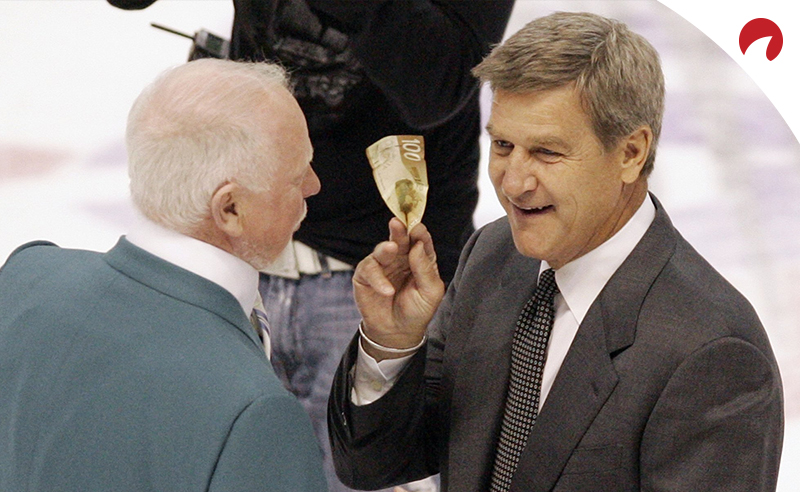NBA
Canada men’s basketball shows its immaturity as it crashes out of Olympics

If there is a lasting image from Canada’s demoralizing defeat in the men’s basketball tournament of the Olympics, it will be that of a Canadian guard leaving his feet with the ball in his hands, not sure what to do next.
The clearest example? With Canada attempting to cut down a massive France lead in the third quarter of Tuesday’s quarterfinal, star guard Shai Gilgeous-Alexander ran the other way in transition. Canada does not have the crispest ball movement, so it must make the most of those chances. France got back well, though — every Canadian was accounted for, and there was a wall in front of the leaping Oklahoma City Thunder guard. He shifted his gaze, looked around and had nowhere to pass. So he just threw the ball straight back, where it bounced to his teammate with club and country, Luguentz Dort. If only he had been over half court.
Then again, putting much of the 82-73 loss on Gilgeous-Alexander would be colossally unfair. He had 27 points and four assists, the only Canadian to put a constant scare into France. No, this was a loss you might lay at whoever’s feet you want: the coaching staff, the player development pipeline, the executives and/or the players. As far as Canada has come in men’s basketball since they were last in the Olympics, this game smacked immaturity from a program still figuring things out.
Just like the last time Canada made this tournament, it was eliminated by France in something of an upset in the quarterfinals.
“I think if you remember this feeling, it’s not a good feeling, and you come back to the Olympics and you remember this feeling,” Canadian head coach Jordi Fernández said to reporters in Paris after the game. “There’s always some disappointment at some point, and you don’t know how much you can do until you go through tough times. I think we’ve had success because we’ve won a lot of games in the last two years. At these tough times, we cannot forget. We cannot forget how this feels, and that’s how we move on (from) this.”
First, Canada will have to get back to this stage.
That Canada was caught flat-footed in this game was understandable. Canada handled France twice in the last calendar year — France didn’t have Victor Wembanyama in the FIBA World Cup last year or Nicolas Batum, who credibly defended Gilgeous-Alexander on Tuesday, in a pre-tournament game in July, but still. France drastically altered its identity, with head coach Vincent Collet all but benching Rudy Gobert, who played fewer than four minutes. (Gobert suffered a finger injury in practice, saying he had surgery; Collet said there was no surgery, and the change was strategic. For Canada’s purposes, it does not matter.) Instead, France came closer to matching up with Canada defensively, surrounding Wembanyama with four nimbler players.
That’s where the immaturity came in. Without obvious mismatches on the perimeter, either when France played traditionally or switched liberally, Canada was stuck moving the ball with little pace. There was not much dribble penetration and even fewer advantages created by cutting; just a lot of surveying and then shooting over or driving into a set defence. That is how Canada went more than six minutes without a point in the first quarter, as so little of the intricate passing that has crept its way into the NBA was evident from Canada. After the game, Fernández called it Canada’s most selfish offensive game of the tournament. It certainly scanned that way.
Canada had a hard time dealing with France’s size which included Victor Wembanyama. (Aris Messinis / AFP via Getty Images)
It was down by 13 at the end of the quarter, and it never got within one possession the rest of the way.
On that note, some things should haunt this Canadian team.
• The referees awarded France 42 free throws to Canada’s 25, hitting 33 to Canada’s 18. FIBA officials often leave a lot to be desired, and there were some questionable calls, especially in the second half.
However, the likes of Guerschon Yabusele (6-foot-8, 260 pounds) and Mathias Lessort (6-9, 240), bigs disguised as wings, buried smaller Canadian wings under the basket, mostly legally until Yabusele used two hands to push off Gilgeous-Alexander in the fourth quarter for a bucket off an entry feed. Those players shot 23 free throws. Until Canada used Trey Lyles as a power forward of a centre, playing him alongside another big to have a more traditional look that has not been its identity for most of the last two years, it was getting bullied. But it was legal bullying.
• Andrew Wiggins (6-7, 197), who, with some light prodding from the Golden State Warriors, decided not to play in the Olympics. Oshae Brissett (6-7, 210), who is currently a free agent in the NBA, asked Canada to release him in training camp as he tried to shore up his professional status. Both could have been useful in this game. Canada needed more wings who scaled up positionally instead of down.
• The hope has to be that Zach Edey is a big part of the future. The ninth-overall pick in June’s NBA Draft and member of the summer core as announced in 2022 pulled his name from consideration as he wanted to focus on his upcoming rookie year with the Memphis Grizzlies. I don’t think that was a huge deal, as I don’t think he would have played a big role on this team. Still, not having a single legitimate rim protector to throw at France as those wings got pummeled down low was an issue.
There should be an overhaul up front by the time the next Olympic cycle comes around. Kelly Olynyk (33 years old) rarely played in this tournament and was ineffective when he did. Dwight Powell (33) was overtaxed in his starting role as an undersized big. Lyles (28) did not make a big impact. Khem Birch (31) was perhaps the best Canadian big on a per-minute basis, and he already came close to retiring because of injuries. Canada is going to have to figure things out there and develop some talent. You can see where the influx of talent on the perimeter might come from for Canada in the next four years. In the paint, it’s less clear.
• Playing small only works if you can hit 3s and run in transition. Dort, RJ Barrett and Dillon Brooks, ostensibly the two through four in the starting lineup, shot 3 of 12 from deep in this game. France beat Canada 12-10 in fast-break points.
• Lastly, there is the matter of Jamal Murray. Before this summer, the Denver Nuggets star hadn’t played for Canada since 2015 at the Pan-Am Games. Despite myriad injuries, including to his calf and elbow, Murray really wanted to play for this team on the biggest stage. We have criticized those who have made the opposite decision before, so Murray must be commended.
He just wasn’t good — not in this game, not in this tournament. He went 3-of-13 with just one assist and three turnovers in 24 minutes against France. The hope was that when Canada needed plays, he would be there to make some of them. He didn’t.
We don’t know how much his injuries led to his poor play. However, he had no connectivity coming into this summer, and he missed some of Canada’s pre-tournament time together. His role meant the diminishing of Andrew Nembhard (just 15 minutes, mostly ineffective, against France) and the virtual disappearance of Nickeil Alexander-Walker. Canada was hoping Murray’s shot making would make up for the chemistry disruption. It never did.
Despite the grizzly ending, this finish still represents a huge step forward. Since losing in the quarterfinals in the Olympic tournament in 2000, Canada hadn’t been back to the stage. In the interim, it had finished 13th, 21st and 22nd at the World Cup, failing to qualify twice before storming onto the scene with a bronze last year.
In that context, that bronze, along with going 3-0 in the group stage in the Olympics, represents a massive come-up. Still, this was a missed opportunity. Gilgeous-Alexander just turned 26. Steve Nash was the same age when he led Canada in Sydney in 2000. He never played another game in the Olympics after that team lost to France. No Canadian man had played once until last month.
Gilgeous-Alexander has much more talent around him now than Nash did then, especially in overall depth. It’s just a warning: Nothing is guaranteed. When your opportunities come, you have to be ready. On Tuesday, Canada was not.
“Once you get to the elimination round, everything matters a little bit more,” Gilgeous-Alexander told reporters in Paris. “I think we’ll be more prepared for that next time.”
He and the rest of the program will have to go about making sure there is a next time. For the program, these will be four long years.
(Top photo of Shai Gilgeous-Alexander: Aris Messinis / AFP via Getty Images)








